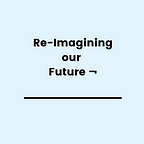Re-Imagining Professional Education
Imagine an educational institution that invests in you rather than you investing in it. Imagine a college that guarantees you a job with a solidly middle class entry level salary, and you never pay a penny to them in tuition fees.
Imagine students, largely from economically disadvantaged backgrounds, picked purely for their aptitude from a massive applicant pool, that will go through the computer programming equivalent of the military boot camp — Long days beginning early in the morning and ending late at night, stretch goals, a variety of courses, a hands-on curriculum, and rigorous exercises. Did I mention that they would not pay a penny till they get hired — Because, these kids would not pay a penny till they get hired at a job paying at least Rs. 5 Lakhs.
Imagine opportunities like this that offer skills beyond computer programming: learning to start a small urban farm, learning permaculture, learning ‘Do it Yourself’ skills and how to use them to start a small business (i.e. fermentation, making herbal tinctures, etc.).
Imagine taking a deep dive into any of these things, for free, with a reciprocal gift culture model in place: You receive a gift (the skills training, and mentorship of any experienced practitioner) and then you reciprocate (either monetarily or non-monetarily (volunteering time, services, etc.)). This would be an example of a more informal exchange. As Vipul mentioned in his opening paragraphs, a more formal exchange would be based on the same principles of reciprocity, but would be more explicitly laid out.
Both are interesting models for me (especially given the current pay-before models of professional education that most universities and organizations function on). However, in my re-imagination, I imagine Professional Education that is built on Relationships and Trust. Where the exchange is informal, and the learner and teacher are both giving from their hearts. Nurturing and being nurtured. As with all else in the informal economy, reciprocity would be at the core of this exchange.
Having a fixed, formalized plan, can make it easy for the learners to give back. Many might give back because they have to? With the informal, trust based system, learners would give back because they want to. The same way teachers/guides would give because they want to.
Can you imagine professional education like this, with hands-on skill development, relationships, trust and reciprocity at the core? What might this look like in your context?
Lead Author: Vipul Redey
If that sounds too good to be true, you should check out Masai School.
During Vipul’s recent conversation with co-founder and CEO, Prateek Shukla, he learned a lot about this amazing organization. Based in Koramangala, Bangalore, they are named as a tribute to the Masai Mara tribe that Prateek lived with for some time. Prateek has tried to imbibe their spirit of training their young to gain expertise in a specific skill that can be useful to the rest of the tribe — An area that, Prateek points out, most modern day colleges do a terrible job at. An alumnus of the prestigious IIT Kanpur, he designed an innovative curriculum with his co-founders Nrupul Dev and Yogesh Bhat to teach cutting edge programming using mastery-based techniques and remote collaboration amongst students.The fourth cohort is currently moving towards graduation.
Here are links the TED Talks that Vipul has given in the past few years:
Anchor Author: Daniel Rudolph
Daniel Rudolph is interested in exploring alternative, experiential learning opportunities for people of all ages. He is passionate about forming community, and building public spaces for meaningful, transformational gathering. Currently he is spending a lot of his time learning juggling and facilitating gatherings. He also enjoys writing and sharing poetry.
Dan, and a small team, are in the process of publishing a series of articles titled ‘Live Human Signposts’ that showcases individuals that have taken alternative paths to higher education and/or are pursuing regenerative livelihoods, which is being commissioned by the Ecoversities Alliance. In March, Dan will begin an apprenticeship in Vermont at the MAPLE Monastic Academy.
